THDA issue briefs are a series of short and informative research reports developed by the THDA Research and Planning Division. Covering a wide range of topics, these briefs provide an unbiased analysis of timely housing and housing affordability issues impacting the State of Tennessee and beyond.
Issue Briefs
-

An Analysis of Investor Purchases of Single-Family Homes in Davidson County, 2018-2022 [May 2024]
This brief utilizes home sales data that was provided by the Davidson County Property Assessor’s office, which contains select property-level information about every home sale that occurred between 2018 and 2022. We merge these data with data from the Census Bureau’s American Community Survey (ACS) 5-year estimates to determine census tract-level characteristics. We used data from the 2019 5-year estimates because the census tracts on our property data were based on 2010’s census tracts, which have since changed based on the 2020 decennial survey.
Learn More -
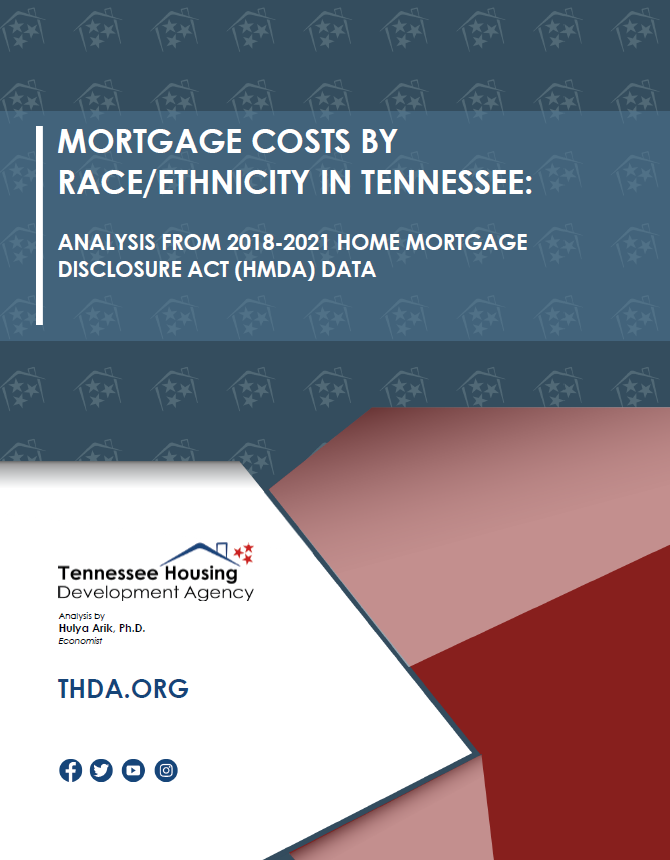
Mortgage Costs by Race/Ethnicity in Tennessee: Analysis from 2018-2021 HMDA Data [May 2023]
This brief utilizes HMDA data from 2018 to 2021 to better understand how refinance loans were utilized by Tennesseans before and during the COVID-19 pandemic. Despite the benefits of refinancing one’s mortgage, we find that, in Tennessee, refinance loan originations were significantly lower for Black and low or moderate income…
Learn More -
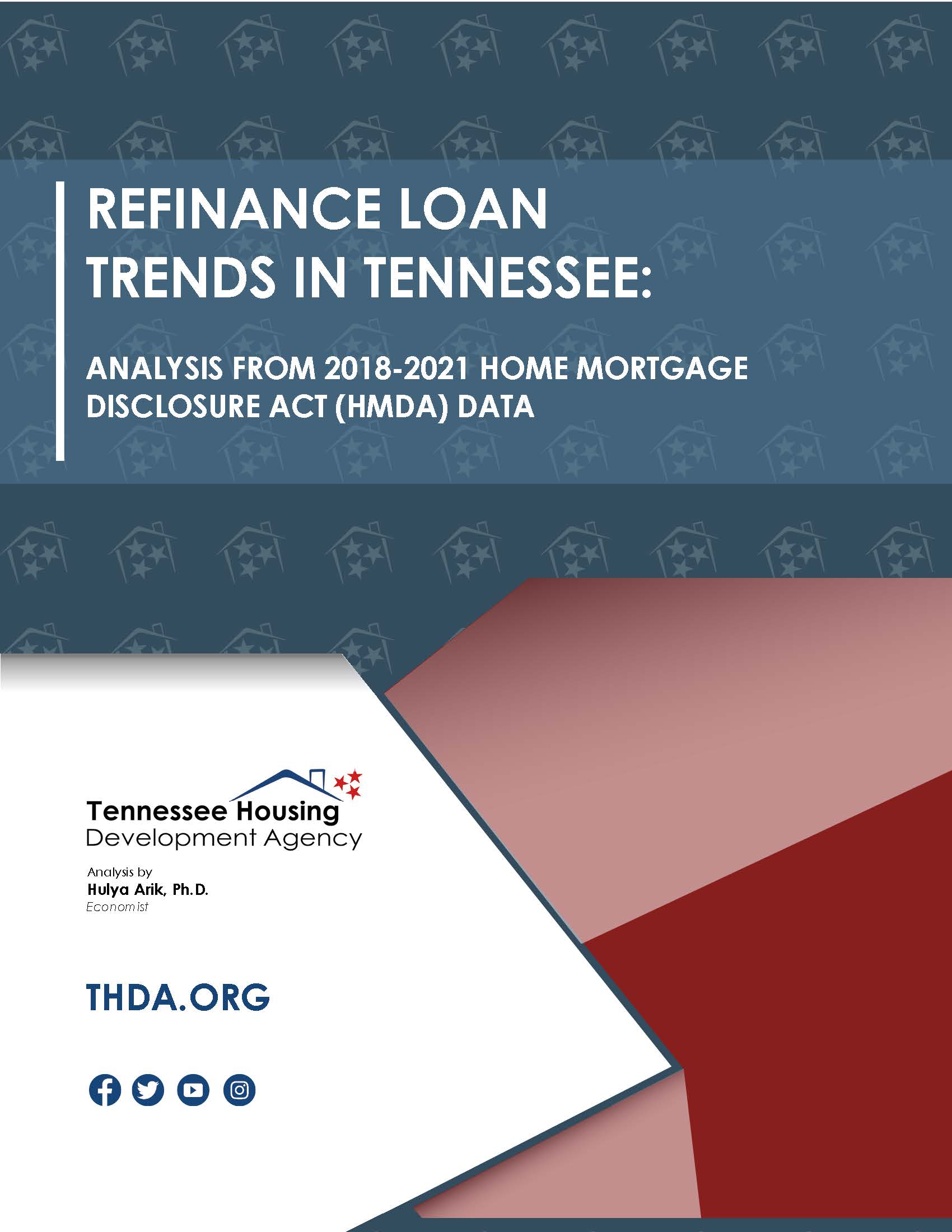
Refinance Loan Trends in Tennessee: Analysis from 2018-2021 [April 2023]
This brief utilizes HMDA data from 2018 to 2021 to better understand how refinance loans were utilized by Tennesseans before and during the COVID-19 pandemic. Despite the benefits of refinancing one’s mortgage, we find that, in Tennessee, refinance loan originations were significantly lower for Black and low or moderate income (LMI) homeowners than their counterparts. We also find that denial rates alone are not a sufficient explanation of the racial disparities in refinance loan originations.
Learn More -
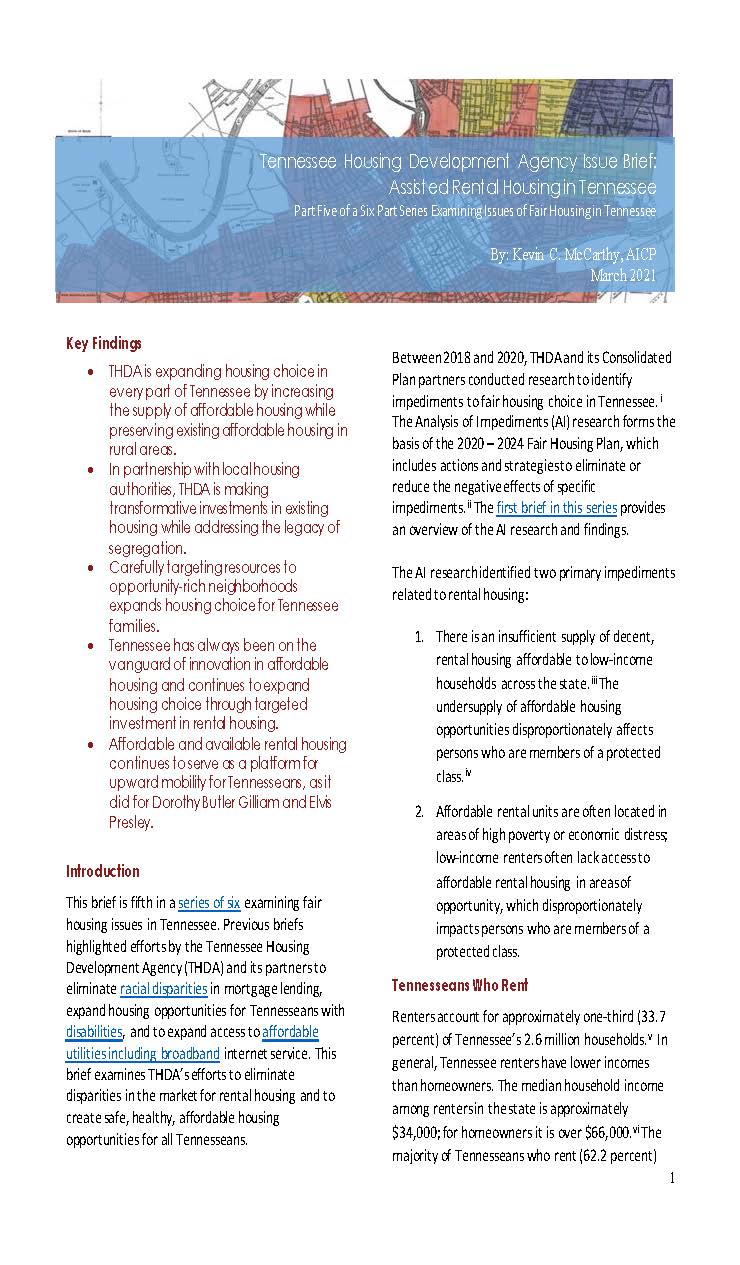
Actions to Overcome Impediments to Fair Housing for Tennessee Renters [March 2021]
Adverse phenomena experienced across Tennessee’s rental markets disproportionately impact individuals and households on the basis of membership in a protected class. The state of Tennessee has long been a leader in developing innovative approaches to rental housing. This brief – the fifth in a series of six examining fair housing issues in Tennessee – describes THDA’s continuing actions to expand fair housing choice in rental housing through careful deployment if its resources.
Learn More -
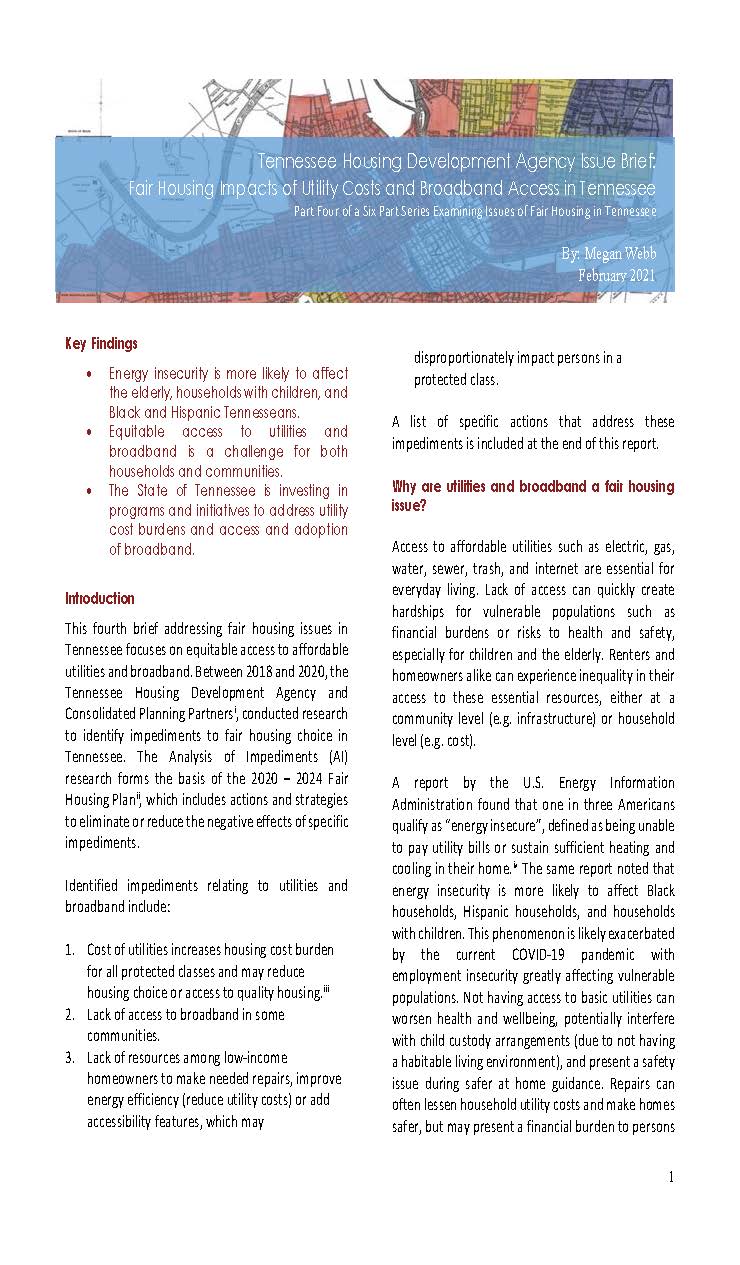
Fair Housing Impacts of Utility Costs and Broadband Access in Tennessee [February 2021]
Though not immediately anticipated as a fair housing concern, equitable and affordable access to utilities and broadband can be important factors in housing stability for vulnerable populations. Utilities can have a great impact on housing affordability and health, while broadband is becoming increasingly important as jobs, schooling, and even medical care moves online. This brief – the fourth in a series of six examining fair housing issues in Tennessee – describes impediments to these essential services at both the household and community level and considers current initiatives by the State of Tennessee to overcome these barriers.
Learn More -
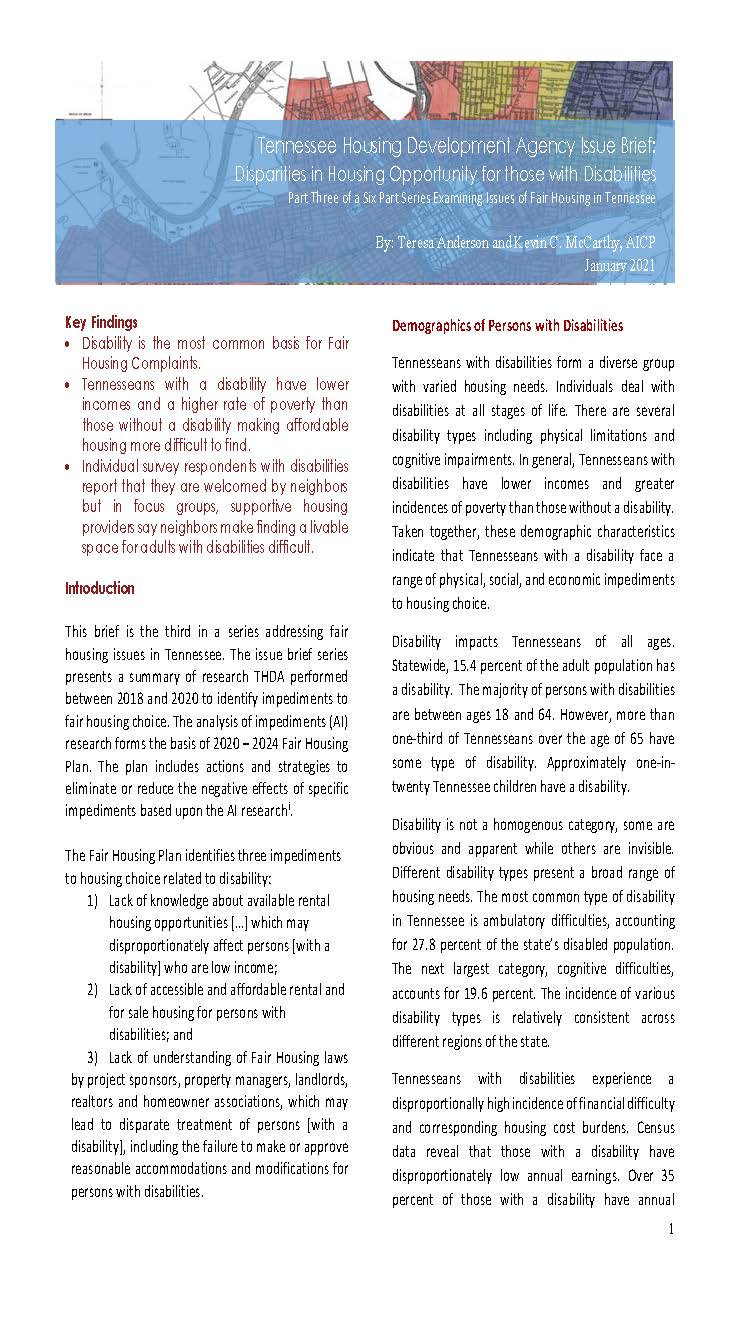
Disparities in Housing Opportunity for those with Disability [February 2021]
Disability is the most common basis for Fair Housing Complaints. More than 15 percent of adult Tennesseans live with some kind of physical, cognitive or other type of disability. THDA is taking action to eliminate impediments to housing choice encountered by Tennesseans with disabilities. This brief – the third in a series of six examining fair housing issues in Tennessee – describes some of the impediments which limit housing choice for Tennesseans with a disability. The brief also describes THDA’s ongoing efforts to eliminate these barriers and increase the supply of housing that is accessible and affordable.
Learn More -
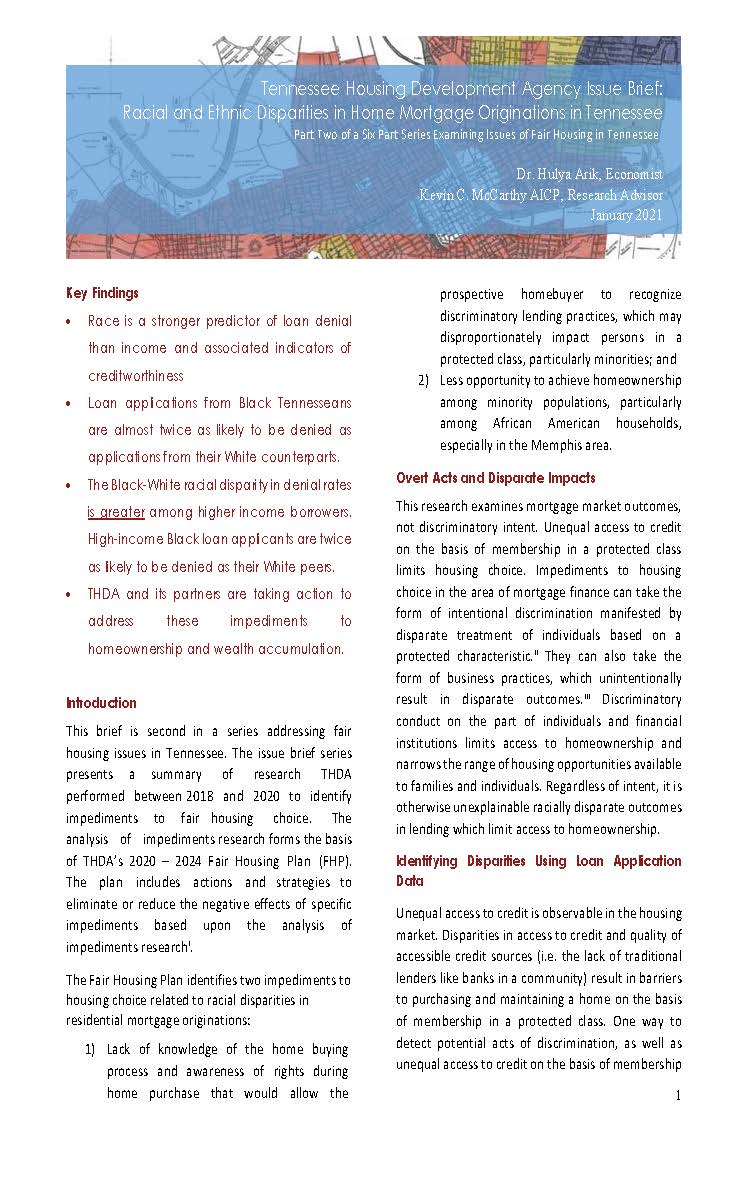
Racial Disparities in Home Mortgage Originations in Tennessee [January 2021]
THDA is taking action to eliminate racial disparities in home loan approval rates in Tennessee. Data show that Black Tennesseans face much greater loan denial rates than their White counterparts. This brief – the second in a series of six examining fair housing issues in Tennessee – quantifies the scale of this unequal access to credit. The brief also describes THDA’s ongoing efforts to close the racial gap in homeownership and loan denial rates.
Learn More -
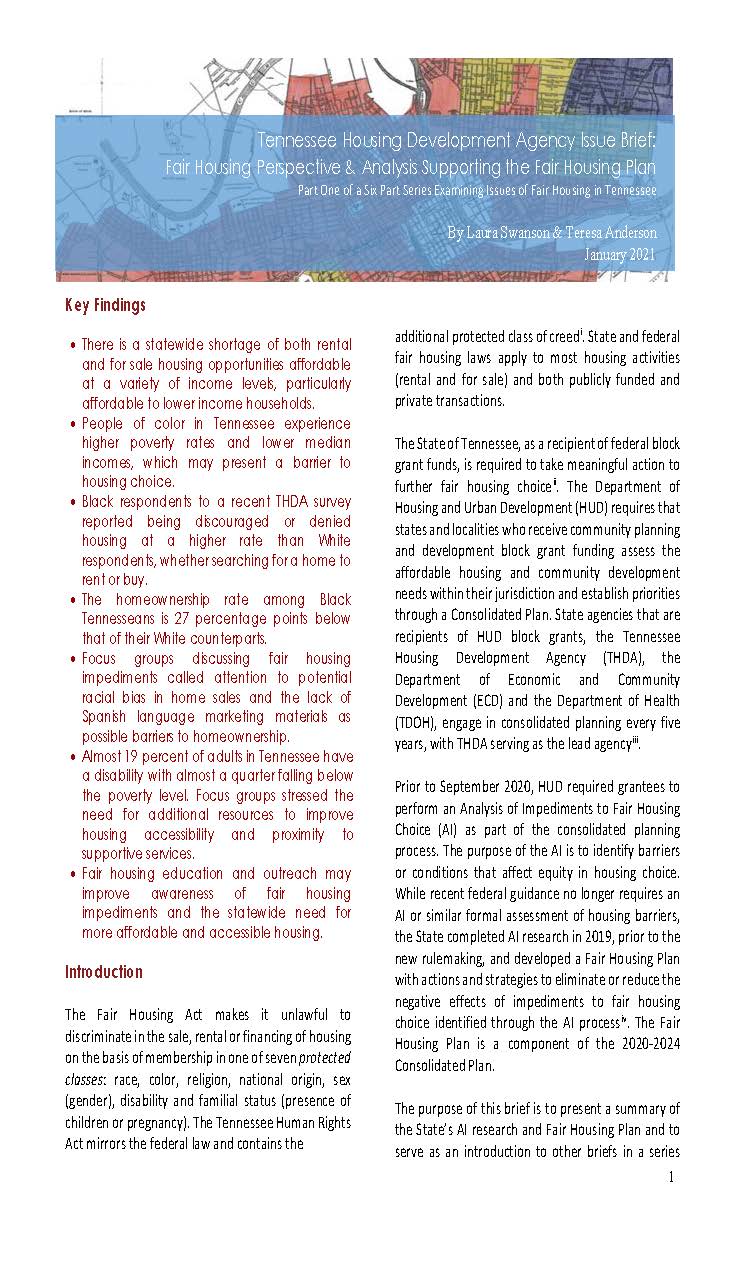
Fair Housing Perspectives [January 2021]
The purpose of this brief is to present a summary of the State’s AI research and Fair Housing Plan and to serve as an introduction to other briefs in a series examining fair housing issues in Tennessee. There will be six briefs in total; view the report for more on disability access, racial disparities, and findings from a THDA survey of Tennesseans.
Learn More
